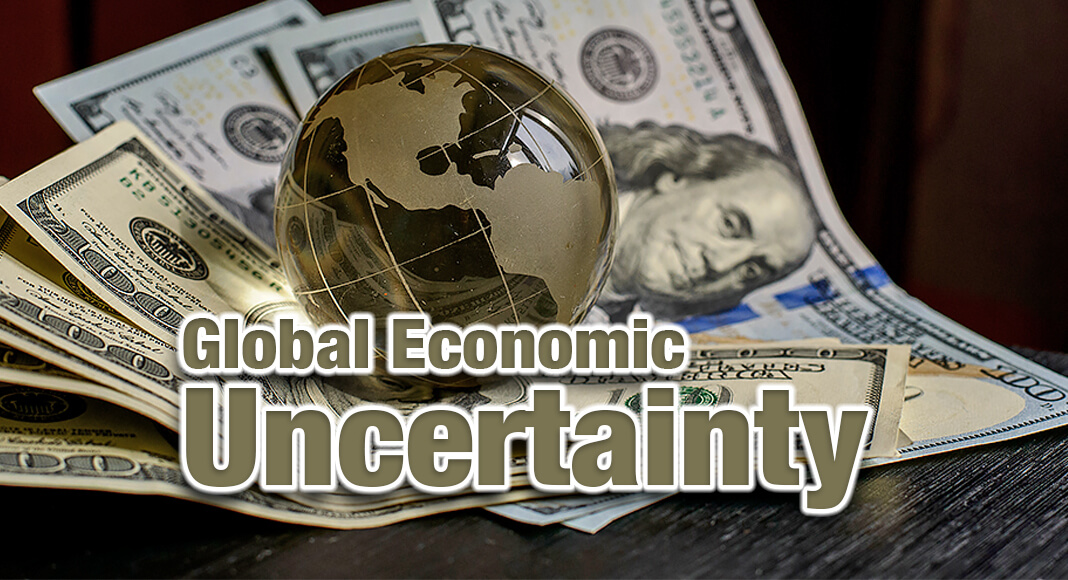
Navigating Global Economic Uncertainty for Future Financial Stability
In today's interconnected world, global economic uncertainty is a persistent challenge affecting businesses, governments, and individuals alike. Recent shifts in geopolitical landscapes, coupled with the aftermath of a global pandemic, have heightened these uncertainties. Understanding how to navigate these turbulent waters is essential for ensuring future financial stability.
The Drivers of Economic Uncertainty
Geopolitical Tensions
Recent conflicts and disputes between major world powers have introduced new levels of unpredictability in global markets. Trade wars, like those seen between the United States and China, create ripple effects that alter supply chains and influence global trade dynamics.
Climate Change Impacts
As the effects of climate change become increasingly evident, economies face pressures to adapt quickly. Natural disasters and unpredictable weather patterns can disrupt local and global economies, affecting everything from agriculture to infrastructure.
Pandemic Aftermath
The COVID-19 pandemic has redefined what economic uncertainty looks like. Nations are grappling with disrupted supply chains, fluctuating demand for goods and services, and a need for increased health expenditures. The legacy of the pandemic continues to shape economic policy and global commerce.
Strategies for Economic Resilience
Diversification of Investments
One of the primary strategies for combating economic uncertainty is investment diversification. By spreading investments across a range of assets and geographical locations, investors can minimize risk and cushion against regional economic shocks.
Government Policy Reformation
To combat instability, countries must focus on proactive policy reform. Implementing policies that encourage sustainable growth, support small and medium enterprises (SMEs), and invest in infrastructure can bolster an economy’s resilience to global fluctuations.
Strengthening Supply Chains
To reduce vulnerability, companies need to develop robust, flexible supply chains that can withstand global disruptions. This involves building relationships with multiple suppliers and considering localized production where possible to enhance operational stability.
The Role of Technology
Digital Transformation
The move towards digital solutions has accelerated in the wake of the pandemic. Digital transformation enables businesses to maintain operations online, reaching new markets without the constraints of physical locations.
Innovation in Financial Technology (FinTech)
FinTech offers new opportunities for securing financial stability through innovative solutions like blockchain and cryptocurrencies. These technologies promise to streamline financial processes, reduce transaction costs, and offer more secure and transparent financial services.
Adapting to the New Normal
Workforce Development
Adapting to new economic conditions requires a skilled workforce that can meet emerging demands. Countries should invest in education and training to prepare workers for roles in digital industries and sectors focusing on sustainability.
Embracing Sustainability
By adopting sustainable business practices, companies not only help mitigate climate change but also prepare for future regulatory changes and consumer preferences. Sustainability can be a key differentiator in a competitive market.
Financial Planning and Risk Management
Individuals and businesses must prioritize sound financial planning and effective risk management strategies. Creating emergency funds, reducing debt, and seeking advice from financial experts are crucial steps towards achieving financial stability in uncertain times.
Collaboration and Global Efforts
International Cooperation
In a globally connected economy, no nation can tackle economic uncertainty alone. International cooperation, through organizations like the World Trade Organization and the International Monetary Fund, is essential for crafting global solutions that ensure economic resilience.
Public-Private Partnerships
Governments and private enterprises need to collaborate closely to foster innovation and address economic challenges. Public-private partnerships can drive projects that lead to technological advancements and infrastructure improvements, which are critical for sustaining economic growth.
Conclusion
Navigating global economic uncertainty requires a proactive approach that combines diversification, technological innovation, and sustainable practices. By leveraging these strategies, businesses and governments can better manage economic challenges and position themselves for long-term financial stability. Embracing change and fostering collaboration will be key to thriving in an ever-evolving global economy. As we look to the future, understanding the dynamic nature of economic landscapes will empower us to make informed decisions that secure a prosperous tomorrow.

